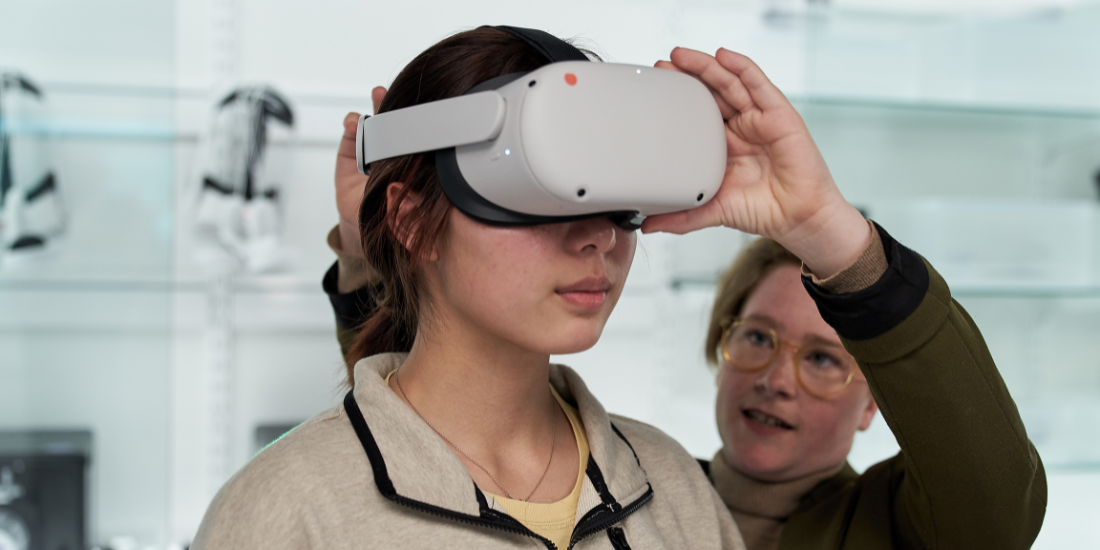
Virtual reality (VR) offers significant opportunities to increase accessibility, engagement and effectiveness of psychological treatments, new research suggests.
An international review led by Orygen Digital researchers and published in leading global scientific journal Nature, titled Advances in the use of virtual reality to treat mental health conditions, provides a comprehensive overview of VR as a tool for the treatment of mental health conditions, highlighting key benefits and areas for development.
Orygen Digital is home to a world-first VR lab where researchers and clinicians test and deliver cutting-edge new research and technologies to support youth mental health.
Professor Lucia Valmaggia, Head of Orygen Digital XR Innovation Lab and a senior author of the new review, said there has been increasing recognition that innovative technologies can improve the quality and reach of available treatments – particularly when combined with human support.
“VR has emerged as a highly promising technology that offers new opportunities for clinical research, assessment and intervention – and Orygen Digital is leading the way in terms of exploring its potential for youth mental health,” Professor Valmaggia said.
“Creating immersive virtual environments through VR can support people with conditions such as anxiety, psychosis and eating disorders to explore simulated environments in a safe and supported way.”
Co-lead author and Senior Research Fellow at Orygen Digital, Dr Imogen Bell, said improving access to mental health treatment is critical in the face of rising rates of mental ill-health globally, and VR technology can support assessment and care.
“One of the most promising aspects of VR technology in youth mental health is its potential to engage younger people in treatment,” Dr Bell said.
“Young people lead increasingly digital lives and are interested in using technologies to support their mental health – system design and gamification can appeal to young people, breaking down barriers to accessing treatment and increasing their engagement.”
In VR, users wear a headset which projects them into a completely immersive environment that looks and feels like the real world. Users can move around and interact with characters and objects in real time, and the technology has been used in the treatment of mental health conditions such as anxiety.
VR Research Fellow at Orygen Digital and co-lead author of the review, Dr Roos Pot-Kolder, said VR technology has been used extensively in the treatment of anxiety disorders, and findings suggest that VR is particularly useful in ‘exposure-based treatments.’
“So, for someone who is socially avoidant, they could experience a crowded cafe simulation and practice coping strategies to better prepare them for the real-world scenario – allowing them to confront a feared situations and learn to feel safe,” Dr Pot-Kolder said.
“We know that psychological treatments don’t always bridge the gap between the therapeutic context and the real-world situations where mental health challenges play out, but VR offers opportunities for people to work through their feelings and anxieties in a way that mimics the real world but has an added layer of safety and support.”
A key gap identified in the review was a lack of research into the use of VR in youth mental health specifically, despite this being a promising population.
To address this gap, Orygen Digital has a stream of work dedicated to developing, evaluating and implementing a new generation of VR treatments which tackle a range of mental health problems in young people, including the Wellcome funded VISOR project, Brain & Behaviour Research Foundation project and Telstra Foundation MIND project.